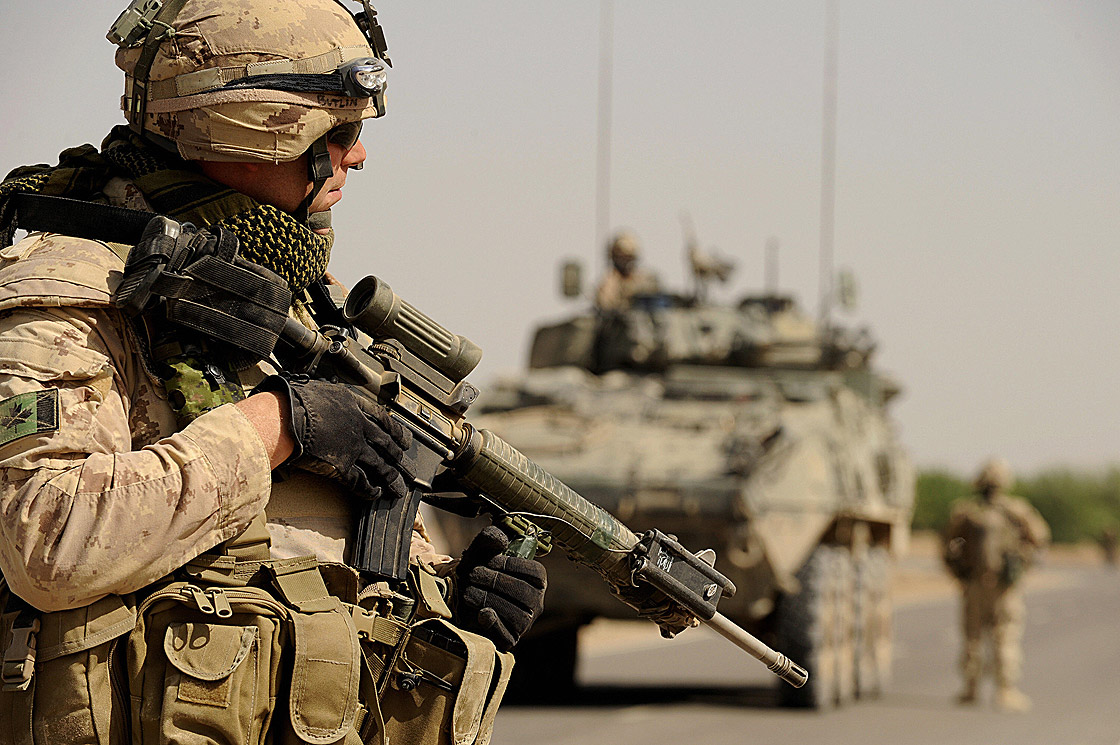TORONTO – American and British criticism of Canada’s long and often bloody military efforts in Afghanistan has a ring of revisionism that ignores key facts, experts say.

In particular, they say, the notion that blithely optimistic Canadians were reluctant to ask for outside help as they struggled alone in Kandahar province, which had been abandoned by the Americans in favour of Iraq, is ludicrous.
“The war (in Afghanistan) isn’t exactly going well, so people look around and try to fix blame wherever they can,” said Canadian military historian, Jack Granatstein.
“The Americans and Brits are good at this historically.”
In his recent book “Little America: The War within the War for Afghanistan,” Washington Post author Rajiv Chandrasekaran criticizes Canada for only having about 800 on-the-ground combat troops to cover the province.
He cites one U.S. adviser as saying Canadian soldiers were “focused on reconstruction activities, not providing security.”
The author also writes the U.S. didn’t push Ottawa to send more troops into Kandahar city because it didn’t want to “dictate” to the Canadians or embarrass them, and that Canada was “reluctant” to ask for help.
“That’s wrong,” Granatstein said. “We tried repeatedly to get assistance. Basically, no help came.”
In fact, a secret communique from then-U.S. ambassador in Kabul Ronald Neumann to Washington brass in September 2006 – amid Canada’s bloody battle known as Operation Medusa – notes Canadian Brig.-Gen. David Fraser appealed for more troops.

Get daily National news
The Wikileaks-published cable cites Fraser as telling a delegation of the North Atlantic Council about the troop juggling that was already going on.
“If I were king for a day, I’d request several battle groups,” Fraser said. “We can balance forces, but not forever.”
Promised French help never materialized, and although the U.S. did send in some troops, it would take several years – when President Barack Obama finally turned his attention to Afghanistan – that an American “surge” began to offer relief to the Canadians.
A senior Canadian commander, who asked not to be identified, said Canada had been looking for partners, and the eventual flood of American troops into the province underscored the crying need for added strength.
“The U.S. shift from Iraq to Afghanistan put sufficient forces into play to begin to do a better job of counter-insurgency,” the commander said.
“No amount of criticism or ‘woulda, shoulda, couldas’ even comes close to the game-changing nature of the surge.”
In another book on the war, author Sandy Gall cites British Gen. David Richards – who commanded allied forces in southern Afghanistan in 2006-2007 – as suggesting under-resourced Canadians were never up to the Kandahar job in the first place.
According to the book, British forces only ended up in neighbouring Helmand because Ottawa wanted the “prestigious” role of taking on Kandahar province.
David Bercuson, who with Granatstein authored a paper on the lessons of the war, said in an interview the British were “wildly under-strength” in Helmand, and their tactics were “little short of stupid.”
Canadian forces struggling to keep a tenuous grip on Kandahar – key Taliban territory – were forced to rescue British troops in Helmand on several occasions.
Granatstein and Bercuson – senior research fellows with the Canadian Defence and Foreign Affairs Institute – conceded Canada made mistakes.
For one thing, they argue, Canadians were poorly prepared for their first shooting war in 50 years because they simply didn’t know what they were getting into in Kandahar.
The strength and determination of the insurgency caught the Canadian military leadership by surprise. Nevertheless, the troops managed – if barely – to stop the insurgency from overrunning the province.
“The Canadians fought well, didn’t have enough troops (but) did a good job nonetheless holding Kandahar province, which was a critical area for the Taliban,” Granatstein said. “We stopped it from falling.”
In his memoir, Britain’s former Afghan ambassador Sherard Cowper-Coles notes Canada’s unrelenting and seemingly misguided optimism – particularly on display by Chris Alexander, his Canadian counterpart and now a Conservative MP.
Granatstein called the optimism – also displayed by successive Canadian commanders – as a “transparent PR move” given the increasing antipathy in Canada toward the Afghan war effort.
Alexander did not respond to a request for comment.
In reality, it is still early days in gaining the solid perspective only time – and the release of mounds of documents that remain under wraps along with information from still reticent key players – can bring.
In the interim, Bercuson said, Canada risks having its mission defined by others.
“There’s a danger that will happen,” Bercuson said. “Until we start getting stuff out of our own, we won’t be able to define our mission there.”







Comments